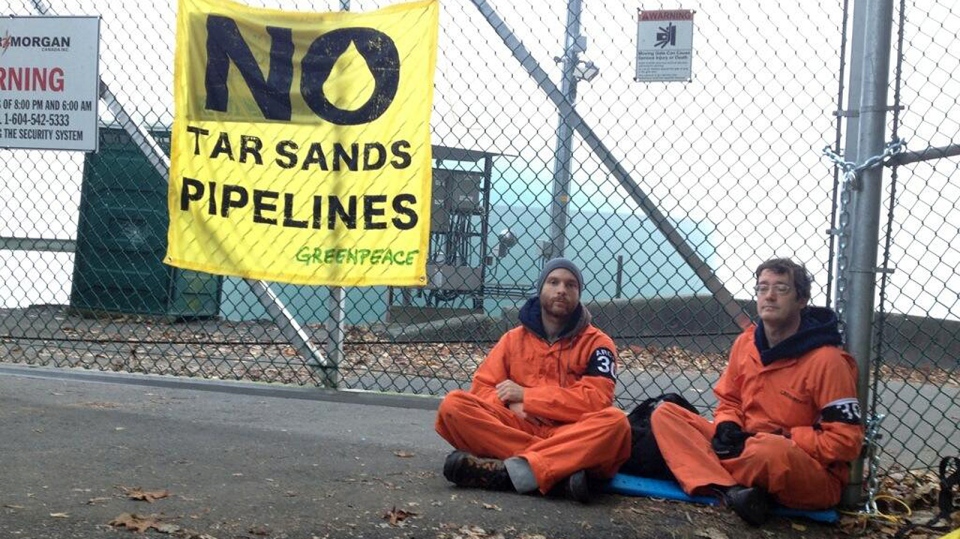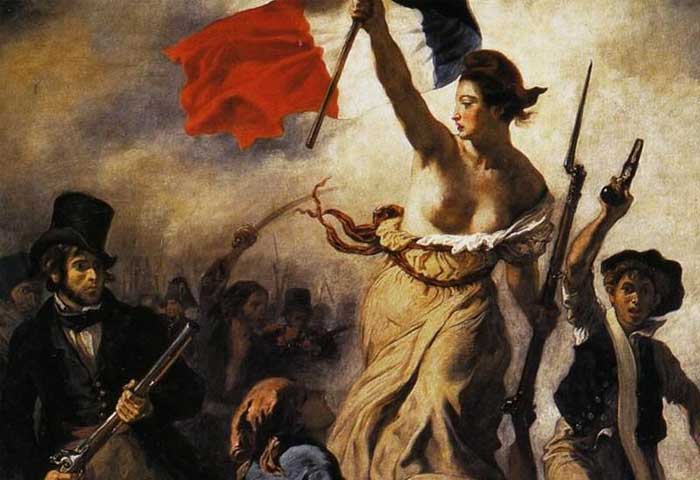Like this article? rabble is reader-supported journalism. Chip in to keep stories like these coming.
Last week Rafe Mair suggested that mass civil disobedience was on the way in B.C. if the federal government had the gall to try and approve Kinder Morgan’s pipeline expansion and tankers project.
Since the National Energy Board decided last Thursday that the project was in Canada’s best interest, a lot of people have been wondering what the next steps should be and exactly what kind of mass civil disobedience Mair was talking about.
While groups organize and people become increasingly anxious about the effects of a major spill on Vancouver’s beaches and coastline, the time is ripe to go over some of the most popular ways to revolt against unpopular governments or decisions.
1. Rallies. Rallies are great! There’s a real feeling of hope and solidarity when you get a large group of people coming together in public to raise their voices to the powers that be. But rallies that don’t go anywhere are boring — nobody knows when to shuffle away at the end and everyone always argues over who gets to take the megaphone home. Part of taking up space in public is taking up space — so take your rally to the streets — and always take both lanes. Whose streets? Our streets!
2. The good old chain-yourself-to-something-and-make-your-demand. An oldie but goodie, this tactic became super popular with suffragists in England fighting for the vote and women’s rights, often chaining themselves to Parliament. In 2013, activists have used chains and bike locks to lock themselves to the front of Kinder Morgan’s Westridge facility in Burnaby, shutting them down, blocking access.

3. Occupying! In 1938, unemployed men occupied the Vancouver post office to protest B.C. Premier Thomas Dufferin Pattullo’s refusal to fund the relief camps that were keeping thousands of men from dying of starvation. They lived in the big post office building, now the Sinclair Centre on West Hastings, for a month before the police stormed the place on what became known as “Bloody Sunday.”
Who can forget Occupy Vancouver! For two months in 2011, to protest rapidly growing inequality and domination of the democratic process by the 1%, protesters camped on the grounds of the Vancouver Art Gallery.
And very recently, activists occupied Indigenous and Northern Affairs Canada (INAC) offices in Toronto, Regina, Winnipeg and Vancouver, forcing Trudeau’s government to confront the crisis in Attawapiskat head on, only leaving when they won a meeting with the Minister of Indigenous Affairs and the Minister of Canadian Heritage, making it clear this issue was not going away.
4. Convoy! If the people with the power won’t listen — travel to where they work! Whether hopping a train or bringing a convoy of pissed off feminists to decision-maker’s doorsteps, protest caravans herald a movement too big to ignore.
Sure, the On to Ottawa trek ended in a police violence when the train stopped in Regina and a lot of the trekkers went to hospital, but Conservative Prime Minister R.B. Bennett’s government was discredited and lost most of its seats in the next election. Relief camps were re-instituted and after the war ended, many of the demands of the trekkers were implemented. Social change is a marathon, not a sprint.
5. Blockades. Blockades are a time-honoured way to prevent great wrongs or shut down infrastructure so the government can’t ignore you. The biggest mass arrests in Canada’s history prior to the 2010 G-20 summit protests in Toronto stemmed from a blockade at Clayoquot Sound to prevent logging opposed by local First Nations and many British Columbians at the end of their ropes.
Just a couple of weeks ago in Burrard Inlet a group of “kayactivists” blocked the tanker Eser K from reaching Kinder Morgan’s Westridge Terminal in Burnaby. Prediction: full-blown kayak tanker blockades by the end of the summer. You mess with the bull, you get the kayaks!
And right now in France, pissed off workers have blockaded ports and roads so that France is running out of fuel. Super effective tactic, the French! You don’t screw around with the French, people. They invented the guillotine.
6. Appropriation. Find out what ships in port contain goods you think are unfairly taxed and throw them in the harbour, declaring your refusal to pay taxes with an eloquent blog post. Remember, it’s not only your action that’s important, it’s getting your message out to the people before the government can spin your action as vandalism. Nobody in America ever feels bad for the merchants who lost all their tea in the Boston Harbour because they’re too busy celebrating their independence from paying the (legitimate) taxes they owed to the British government.
7. I’m scared of being arrested for incitement, so just do an online search for the “Squamish Five.” But you didn’t hear it from me!
8. Burn someone in effigy! A long tradition in England where people burn Guy Fawkes every fifth of November, it’s just as fun to burn an effigy of the Prime Minister or Premier.
When hundreds of women travelling with the Abortion Caravan arrived in Ottawa they rallied on Parliament Hill for two days. Then-Prime Minister Pierre Trudeau was burned in effigy outside of 24 Sussex Drive and the protesters delivered a coat-hanger covered black coffin on his front step.
It was 18 years until abortion was finally legalized in Canada, but after the caravan the issue never really left public consciousness. Again: long game.
9. Full-on confederacy. Seek change from the inside! Have you identified a political party (or two) that talk a good game about democracy but really just sell off public assets for private profit? Join the party and fight them from the inside!
Here’s some advice from the OSS, the CIA’s Second World War precursor. They’re very good at destabilizing organizations. The only downside is you rarely, if ever, get to triumphantly preen in front of your dupes after you’ve salted the earth they once grew their metaphorical crops in.
And always remember — those who hold the levers of state power are well aware of the latent power of collective action and protest. Speaking in front of the Canadian Club in Toronto during the last election, Justin Trudeau warned the Bay Street elite that they could either give a little now or face something much worse later. Sure, he was talking about the NDP, but he could also have been talking about us!
Moral of the story? Woody Guthrie said it best, “Take it easy — but take it.”
Like this article? rabble is reader-supported journalism. Chip in to keep stories like these coming.



